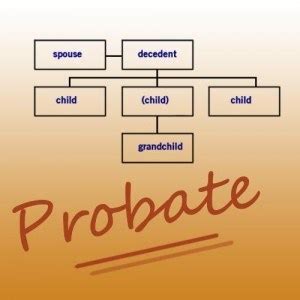Understanding Louisiana's Probate Process (No Lawyer)
Navigating the probate process in Louisiana without legal representation can feel daunting, but with careful planning and a thorough understanding of the procedures, it's entirely possible. This guide provides a comprehensive overview of the process, designed to empower you to handle your loved one's estate efficiently and legally. Disclaimer: This information is for educational purposes only and does not constitute legal advice. Consult with a legal professional for advice tailored to your specific circumstances.
What is Probate in Louisiana?
Probate is the legal process of administering a deceased person's estate. This involves gathering assets, paying debts, and distributing the remaining assets to heirs according to the deceased's will (if one exists) or Louisiana's intestacy laws (if there's no will). Louisiana follows a civil law system, which differs significantly from the common law systems used in many other states. Understanding these differences is crucial for successfully navigating the process.
Types of Probate in Louisiana
Louisiana offers several paths for probate, each with varying levels of formality and complexity:
- Formal Probate: This is the most common and formal type of probate, requiring court supervision throughout the entire process. It's necessary when the estate includes complex assets or significant debts.
- Informal Probate (Succession Without Court Intervention): This simplified process is available for smaller, less complex estates that meet specific criteria, such as low asset value and uncomplicated inheritances. It avoids the expense and time associated with formal probate.
- Small Succession: This streamlined process is available for estates valued below a certain threshold (currently $75,000). It simplifies the administration significantly and often requires less paperwork.
Key Steps in the Louisiana Probate Process (Without a Lawyer)
While navigating probate without a lawyer is possible, it's crucial to meticulously follow all legal procedures. Here's a general overview of the key steps:
1. Gathering Necessary Documents
Before initiating the probate process, you'll need several essential documents:
- Death Certificate: This is the cornerstone document proving the death of the deceased.
- Will (if applicable): If a will exists, it outlines the distribution of assets. A properly executed will is critical for avoiding complications.
- Inventory of Assets: Create a detailed list of all assets, including bank accounts, real estate, vehicles, investments, and personal property.
- List of Debts: Note all outstanding debts, such as mortgages, credit card balances, and medical bills.
2. Opening the Probate Case (If Necessary)
For formal probate or situations not qualifying for simplified processes, you'll need to file the necessary paperwork with the appropriate Louisiana court. This typically involves filing a Petition for Probate and providing supporting documentation.
3. Inventorying and Appraising Assets
Accurately valuing all assets is crucial. You may need to obtain appraisals from qualified professionals for certain assets, like real estate or collectibles.
4. Paying Debts and Taxes
Debts must be paid according to their priority. This includes secured debts (like mortgages) before unsecured debts (like credit card bills). Estate taxes may also need to be paid.
5. Distributing Assets
Once debts and taxes are settled, the remaining assets are distributed to the heirs as specified in the will or according to Louisiana's intestacy laws. This often involves transferring ownership of assets.
6. Closing the Estate
The probate process concludes with the filing of a final accounting, showing all transactions and the distribution of assets. Once approved by the court, the estate is officially closed.
Frequently Asked Questions (FAQs)
How long does the Louisiana probate process take?
The duration varies greatly depending on the complexity of the estate and the type of probate used. Simple estates might be settled within a few months, while complex cases can take years.
What are Louisiana's intestacy laws?
If someone dies without a will, Louisiana's intestacy laws determine how assets are distributed. These laws prioritize close family members, with spouses and children generally receiving the largest shares.
What happens if there's a dispute among heirs?
Disputes among heirs are common and can significantly complicate the probate process. Mediation or litigation may be necessary to resolve disagreements.
Can I represent myself in probate court?
Yes, you can represent yourself, but it's generally advisable to seek legal counsel, especially for complex estates. The legal process can be intricate, and mistakes can have serious consequences.
What are the costs involved in Louisiana probate?
Costs vary depending on the complexity of the estate and the services required. Court fees, appraisal costs, and other administrative expenses contribute to the overall cost.
Navigating the Louisiana probate process without a lawyer requires diligent preparation, meticulous record-keeping, and a thorough understanding of the applicable laws. While possible, it's highly recommended to seek legal counsel, particularly in complex situations, to ensure a smooth and efficient process. Remember, this information is for educational purposes only and should not be considered a substitute for professional legal advice.

